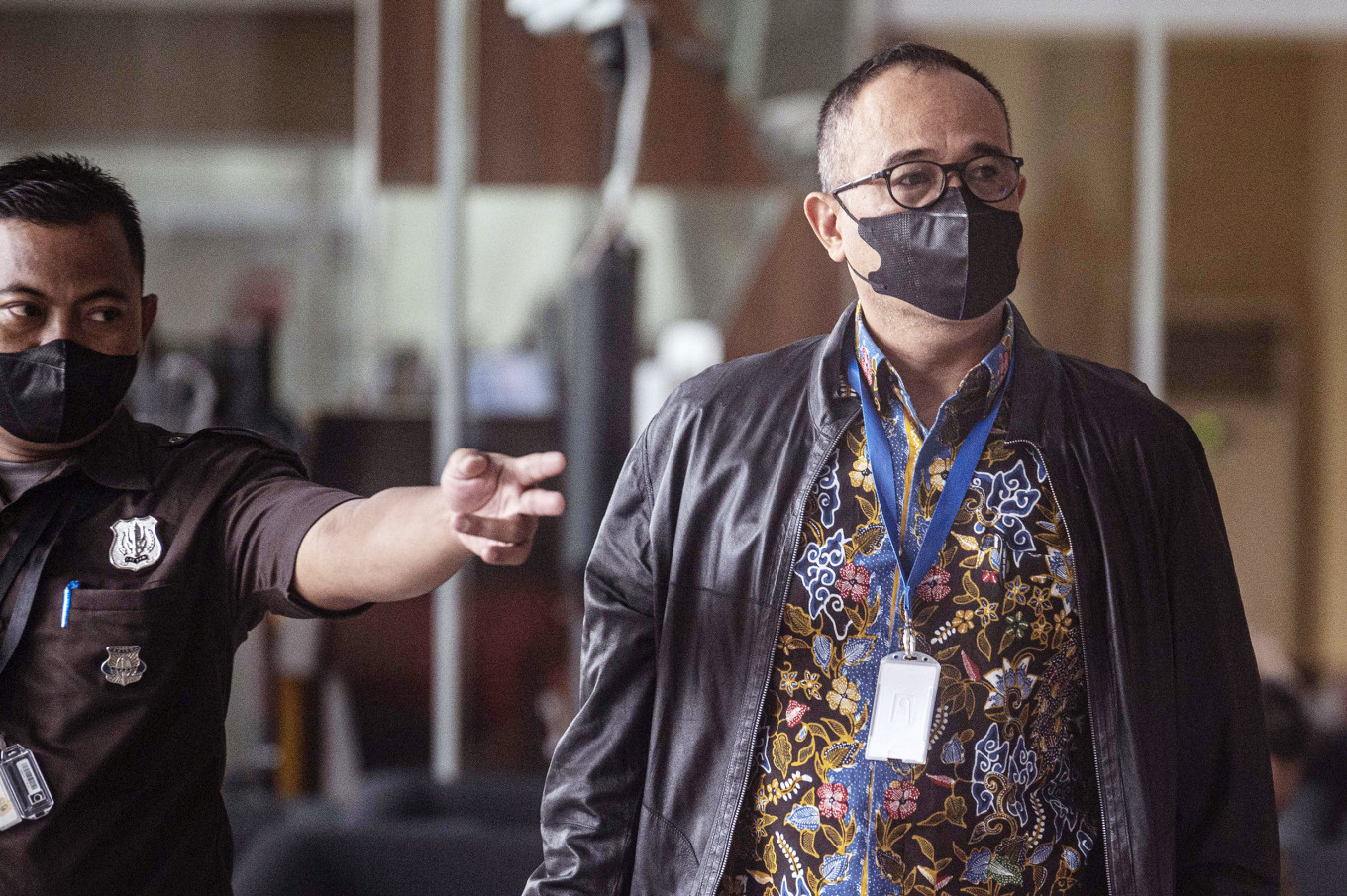Calls mount for assets bill to regulate illicit enrichment
Antigraft activists are increasingly pushing for a provision on illicit enrichment in the Asset Forfeiture Bill as an effective way to address wayward officials as well as fulfill the UNCAC.
Change text size
Gift Premium Articles
to Anyone

T
he idea to regulate illicit enrichment through the government-led Asset Forfeiture Bill is gaining ground in anticorruption circles as a way to more effectively handle ostentatious public displays of wealth, such as the recent raft of cases involving mid-level civil servants.
But legislators are not fully convinced of the merits of going down this route, and some have even proposed overhauling additional antigraft laws instead.
The assets bill has been gestating for more than two presidential terms after it was dropped from the House of Representatives’ list of priority legislation in 2012, despite renewed urgency after the Susilo Bambang Yudhoyono administration cleaned house at the Finance Ministry’s corrupt taxation directorate general.
Activists at the time maintained that even though some asset recovery measures had been addressed in the 2002 Anticorruption Law and the 2010 Money Laundering Law, neither was implemented adequately nor effectively.
Several attempts were made to convince Joko “Jokowi” Widodo to adopt the legislation during his presidency, but these were followed up only this month when Law and Human Rights Minister Yasonna Laoly state that the draft bill had been sent to the President for approval.
Antigraft activists believe there is renewed urgency now more than ever to regulate illicit enrichment after the recent spate of incidents involving officials in the tax, excise, land management and other administrative divisions.
Zaenur Rohman, a researcher at the Center for Anticorruption Studies at Gadjah Mada University (UGM) and an antigraft activist, said regulating illicit enrichment was part of the 2003 United Nations Convention Against Corruption (UNCAC), which Indonesia had ratified without introducing specific regulations on this form of corruption.
“Accumulation of wealth from unclear sources is not yet a legal violation here in Indonesia,” Zaenur told The Jakarta Post on Thursday.
He added that technically, illicit enrichment could be handled under the money laundering framework, but this would require an active criminal investigation.
In other words, engaging in an activity that raises suspicions of illicit enrichment is not enough on its own to launch an investigation.
“If Indonesia wants to effectively eradicate corruption and other [related] crimes, we need to regulate illicit enrichment” in the assets bill, Zaenur stressed.
“Otherwise, problems such as the R.A.T. [Rafael Alun Trisambodo] case or the Rp 349 trillion [in suspicious transactions] can easily dissipate without any meaningful law enforcement,” he said, referring to two hotly debated cases.
With the help of internet sleuths, the extravagant lifestyles of several officials have been publicly exposed over the last few weeks, raising suspicions over the sources of their wealth.
The first to fall was former tax official Rafael, whose son’s alleged aggravated assault of a teenager in February opened a can of worms and prompted an investigation by the Corruption Eradication Commission (KPK). Rafael was fired after the Financial Transaction Reports and Analysis Center (PPATK) found Rp 500 billion that linked back to him, contradicting his annual wealth report.
Former senior Yogyakarta excise official Eko Darmanto, top Makassar excise official Andhi Pramono and East Jakarta tax office head Wahono Saputro are also being investigated for suspected corruption.
Outside of the Finance Ministry, mid-level civil servant Esha Rahmansah and East Jakarta Land Agency head Sudarman Harjasaputra are being investigated for flaunting their wealth.
Means to an end
Arsul Sani of House Commission III overseeing legal affairs, who hails from the United Development Party (PPP) faction, stated that illicit enrichment would be better addressed as an amendment to the 2001 Anticorruption Law, which focused on preventive measures. Only then could the assets bill regulate the related legal mechanisms.
“Indonesia already ratified the UNCAC with Law No. 7/2006, and the convention already regulates criminal [sanctions] for illicit enrichment. Ideally, the ratification should have been followed up with a revision of the Anticorruption Law,” Arsul told the Post on Thursday.
However, Zaenur from UGM says that ratifying the UNCAC does not automatically implement all clauses in the convention, and insists it will be better to regulate illicit enrichment in the assets bill.
“The government has already proposed the bill to the House, so we won’t have to start from scratch, [unlike revising] the Anticorruption Law. The assets bill is already being processed,” he said.
Law minister Yasonna said on March 8 that the draft assets bill had been consolidated and was currently on the President’s desk. He also expressed his hope that Jokowi would soon send a Presidential Letter (Surpres) to the House to kick-start the bill’s deliberation.
However, House Legislative Body (Baleg) head Supratman Andi Atgas, who hails from the Gerindra Party faction, told the Post on Thursday that lawmakers were still awaiting the government’s proposed bill.
“I have neither received the draft bill nor its accompanying academic [text],” he said.









